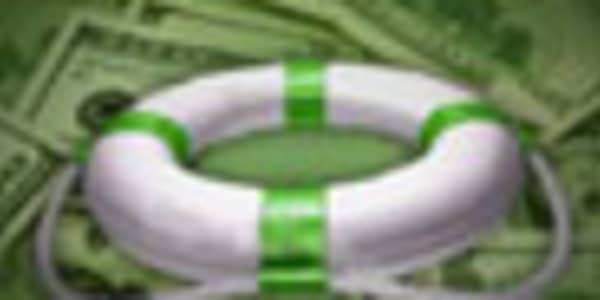Call it the "mortgage mess," the "housing slump" or the "credit crunch." In any case, it's been a one-of-a-kind financial crisis, whose tentacles reach far and wide.
Much has been made of the pain on Wall Street, but the damage on Main Street — and the personal balance sheets of millions of Americans — may be even worse.
Many incomes are flat or down. The same goes for investment portfolios. In many parts of the country, your house isn't worth what it used to be. In a few states, foreclosures are a common event. People are losing their jobs, homes — or both.
Balancing Act
Managing one's credit and debt has become a high-stakes, high-anxiety balancing act. And so we've produced this special report "Balancing Act: Credit & Debt" with useful advice and suggestions.
"People are really getting squeezed right now," Clare Stenstrom, a certified financial planner with Stenstrom Lent Asset Management, tells regular personal finance contributor Shelly K. Schwartz. "Too many people think that their credit limit on their cards is their money. It’s not. It’s borrowed money that you have to pay back with interest."
We're not talking chump change here because the average American household carries nearly $10,000 in credit card debt, according to CardTrak.com.
Of course for those of you where the damage is already done, that's not much consolation, but we do have some helpful hints on restoring your credit in Schwartz's story.
Help!
This whole credit issue can be a bit daunting, if not depressing, which is why more than a few companies out there have made a business out of offering help. We say offering help, because as our other regular contributor, Jennifer Woods, reports, most so-called credit repair services "are not all they’re cracked up to be."“If the information in your credit report is correct and has been verified by a credit bureau there is no legal way to rectify that other than time,” Bill Gustafson, senior director of the Center for Financial Responsibility at Texas Tech University, tells Woods.
Still, the desperate may be tempted, so check out the Federal Trade Commission's list of warning signs to help you decipher between legitimate services and scam ones.
There are, of course, alternatives, such as consolidating debt. It's not as easy as it used to be -- again, thanks to the credit crunch. Still, it can make a difference for those who act sooner rather than later. Woods' covers that ground, as well.
“Debt consolidation is always a good idea on paper," says Gail Cunningham, a spokesperson for the , but "in practice, unless you are a very disciplined person, debt consolidation isn’t going to work."
Check out that story on the merits and pitfalls of debt consolidation.
Live Debt Free Or ...
No, we're not talking about the state motto of New Hampshire. We're talking about a lifestyle, as well as a philosophy.
You can live a debt-free life -- more or less -- and you can start by reading Schwartz's how-to guide. With debt, like cholesterol apparently, there is the good and the bad and the former will help you avoid the ugly.
Other than the big-ticket items of a home, people who "choose a cash-only lifestyle, she notes, simply don’t feel comfortable carrying debt," writes Schwartz.
So check out her ten-step course on ridding yourself of bad debt – for good.
House And Home
There's no shortage of bad debt out there these days and lenders -- who are partly responsible for it -- have tightened their loan standards.
That's created a bit of a Catch 22 for the mortgage and housing markets. Lower interest rates are needed to lower borrowing costs, make housing more affordable and stimulate property sales, but existing liquidity out there isn't what it should be -- especially for those looking to refinance. CNBC staffer Jeff Cox takes a look at that dynamic and offers up a few suggestions.
If all else fails, there's always Uncle Sam, whose deep pockets sometimes seem bottomless. The housing bailout bill signed into law Wednesday by President Bush offers a fair amount of relief to troubled homeowners, including mortgage refinancing, tax breaks, loans, foreclosure assistance and, of course, counseling. Here's what's in it for you.
Finally, for those of you with good credit. Keep up the good work. And, as Benjamin Franklin said: "Remember that credit is money."





